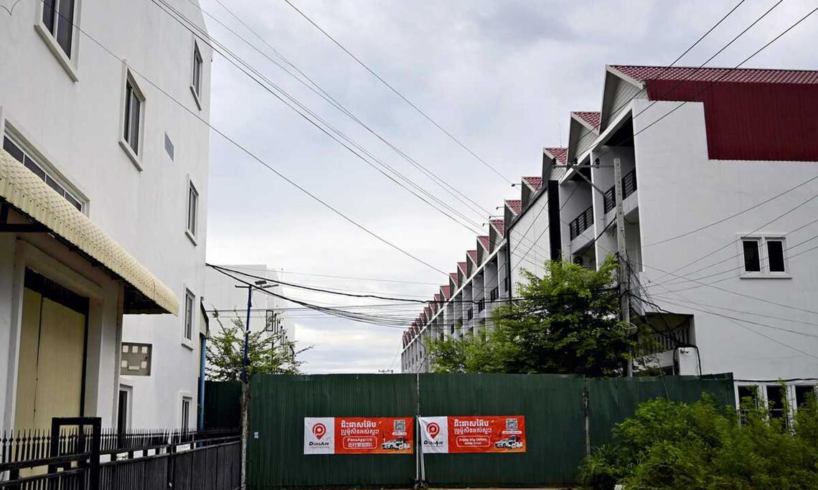
TOKYO – Several Japanese nationals have been arrested after travelling to South-east Asian countries and joining groups that conducted scams.
They were lured by enticing phrases such as “high income” and “earn tonnes of money” but ended up being forced to carry out phone scams under strict surveillance.
Police investigations revealed that these overseas scam bases are controlled by violence.
“More than 20 Japanese nationals live in a facility at a scam base surrounded by walls. They carry out phone scams at an office,” a man told Aichi prefectural police.
He had returned to Japan in January from a scam base in Poipet in north-western Cambodia.
His statement led to the repatriation of 29 men and women to Japan in August, who are believed to have carried out phone scams. They were arrested by the prefectural police on suspicion of attempted fraud.
According to the police, the 29 people are said to have lived in a housing complex at the base. It had facilities including a convenience store, clinic, barbershop and nail salon that provided a comfortable living environment.
However, they were not allowed to leave the base without permission and armed guards were stationed at the gate.
Some suspects reportedly told investigators that they had seen lions, tigers and crocodiles being kept at the base.
There was an established system to methodically make phone scams under the surveillance of multiple Chinese nationals.
The 29 Japanese people posed as telecommunications company employees and police officers, among other professions, in spaces separated for small groups. They made the calls from morning to night using devices including smartphones.
For meals at work, they could sometimes order Japanese, Chinese or fast food to be delivered.
Wake-up times and bedtimes were fixed, and the results of the scams were recorded on a whiteboard. Surveillance cameras recorded the workers, who would be fined if they were late for work.
Newcomers were required to memorise manuals. At the end of the day, there was a review meeting among the callers, where they would listen to one another’s recorded calls and discuss strategies such as effective lines to deceive people.
The suspects were beaten and kicked if they were not successful in their scams, or if they said they wanted to leave.
Some had their eardrums burned with a high-powered flame lighter, while others had their fingernails ripped off.
One suspect is quoted by the prefectural police as saying: “The environment was harsher than I expected.”
Many of the 29 suspects had allegedly travelled to Cambodia to pay off their debts, and the police confirmed that they were lured by the idea that they could earn money.
The suspects were solicited via social media, but some were recruited face-to-face, leading the prefectural police to believe that there are recruiters in Japan and people who guide them in Cambodia.
The suspects are believed to have received a small cut of the money obtained through the scams as a reward, with higher rewards if they played the role of a police officer because of its “high difficulty”.
Many of the suspects spent their money at a store related to sex services at the base, while others used the money to pay off their debts.
At the time of repatriation, most of the suspects did not have any cash on them. Those who did had at most, about 2,700 yen (S$23).
Another case has also surfaced in Myanmar’s eastern border region, in which Japanese nationals were beaten and forced to conduct phone scams.
It is believed that if they failed to meet their quota, they would not be paid and a stun gun would be used against them. The base was surrounded by barbed wire with stationed armed guards, like the Cambodian base.
Two people, who were arrested by the prefectural police in April on suspicion of fraud, reportedly told others that they had applied for a well-paying part-time job.
They are believed to have used the reward money for living expenses at the base. Both had less than 10,000 yen on them at the time of their arrests.
A senior prefectural police officer investigating the Cambodia and Myanmar cases said: “In order to live, people needed to use money in the base. It is a system in which the rewards callers obtain through the scams are returned to the operators of the bases.” THE JAPAN NEWS/ASIA NEWS NETWORK
JapanScamsInternet crimes and scams





